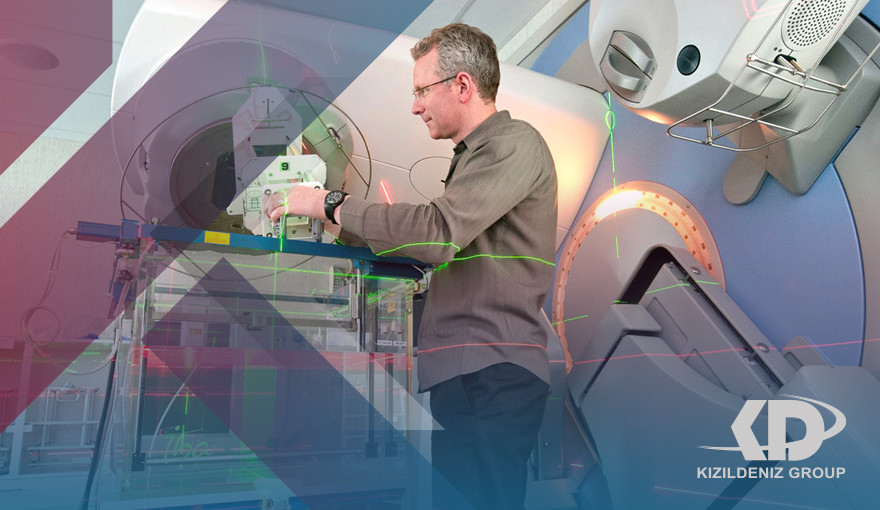What is the specialty of Medical Physics:
Medical physics is a profession that deals with the application of concepts and methods of physics for the prevention, diagnosis, and treatment of human diseases with the specific objective of improving human health and well-being, and since 2008, medical physics has been listed as a health profession according to the ILO International Standard Classification of Professions. Although medical physics may sometimes be referred to as biomedical physics, medical biophysics, applied physics in medicine, applications of physics in medical sciences, radiation physics, or hospital radiophysics, A "medical physicist" is specifically a health specialist with specialized education and training in the concepts and techniques of applying physics in medicine and competence to practice independently in one or more subfields of medical physics. Traditionally, medical physicists are present in the following health care disciplines: radiation oncology treatment (also known as radiotherapy or radiotherapy), diagnostic and interferometric radiation (also known as medical imaging), nuclear medicine, and radiation protection. Medical physics for radiotherapy can include actions such as dosimetry, quality assurance for linak, and dune treatment. Diagnostic and interferometric medical physics includes medical imaging techniques such as magnetic resonance imaging, ultrasound, tomography, and X-rays. Nuclear medicine will include positronic tomography and radionuclide therapy. However, one can find medical physicists in many other fields such as physiological observation, hearing science, neuroscience, neuropathology, neuropathology, heart disease, and others.
Medical physics departments can be found in institutions such as universities, hospitals, and laboratories. The university departments are of two kinds. The first type is primarily concerned with preparing students for a career as a physiologist at the hospital and the research focuses on improving the practice of the profession. The second type (increasingly called "biomedical physics") has a much wider scope and may include research into any applications of physics in medicine from the study of biomolecular structure to microscopy and nanoparticles.
History of Medical Physics Specialization:
The historical origins of medical physics were attributed to the first use of weight as a means of health control by Sanctorius in the early 17th century until the advent of radiology, phototherapy, and electrical therapy at the end of the 19th century.
The origins of biomaterials, due to Borelli, and medical electricity were included after Mushenbrook's report on Leyden Jar.
Medical physics emerged as a separate academic system in France at the time of the revolution, and Jean Haley was its first professor. Physiology flourished in Germany during the mid-19th century, led by the work of Adolf Vick. Neil Arnott's introduction of the term medical physics into English failed to accelerate its acceptance in Britain or the United States. Contributions from Newton, Oiler, Bernoulli, Nolet, Mattucci, Bellettan, Jaffaret, Darsonval, Finsen, Röntgen and others were mentioned. There are many origins of medical physics, stemming from the many intersections between physics and medicine. In general, the definition of medical physics in the early nineteenth century still exists to this day: "Physics applies to the knowledge of the human body, its preservation and the treatment of its diseases."
The importance of studying the specialty of Medical Physics:
Have you ever wondered why physics is so important in medicine? Well, there are many reasons why he's so vital to this field. In fact, that's a deceptively simple question because physics exists in everything, from microscopic procedures to imaging equipment like X - rays, MRI, and ultrasound... And that's why it's so hard to give a simple answer because there's so much physics in medicine that it's hard to know where to start. The simple answer is that physics is useful in many aspects of medicine both in therapy but especially in diagnostic medicine, such as X-rays, tomography, ultrasound, etc. One of the reasons why physics is important to medicine is "medical physics," medical physics is a branch of applied physics related to the application of physics to medicine. It's generally about physics as applied to medical imaging and radiotherapy. Medical imaging refers to techniques and processes used to create images of the human body (or parts thereof) for clinical purposes (medical procedures aimed at detecting, diagnosing, or examining the disease) or medical sciences (including the study of autopsy and natural function. These are the following: Magnetic resonance radiography, including X-rays, fluorescence, mammography, dual-energy X-ray absorption, angiography, ultrasound. The study of modern medicine is complete with technology. Your knowledge of physics can be useful for understanding the basic science behind these techniques, and what makes them work and apply. You see that physics helps a lot in medicine without it, we are unable to enjoy the treatment we enjoy today.
Medical Physics courses:
- Physics of Nuclear Medicine
- Methods in biomedical informatics
- MRI, ultrasound, and interferometric technology
- The Physics of Radiation Therapy
- Applied radiotherapy physics
- Radiation physics and dosimetry
- Radiation Biology
- Computer medical physics
Fields of work for the Medical Physics major:
- Therapeutic medical physics
- Diagnostic medical physics
- Physics of Nuclear Medicine
- Medical health physics
- Magnetic resonance imaging physics
Best Universities for Medical Physics in Turkey:
- Izmir Economic University
- Yeditepe University
 FR
FR AR
AR
 Next one
Next one